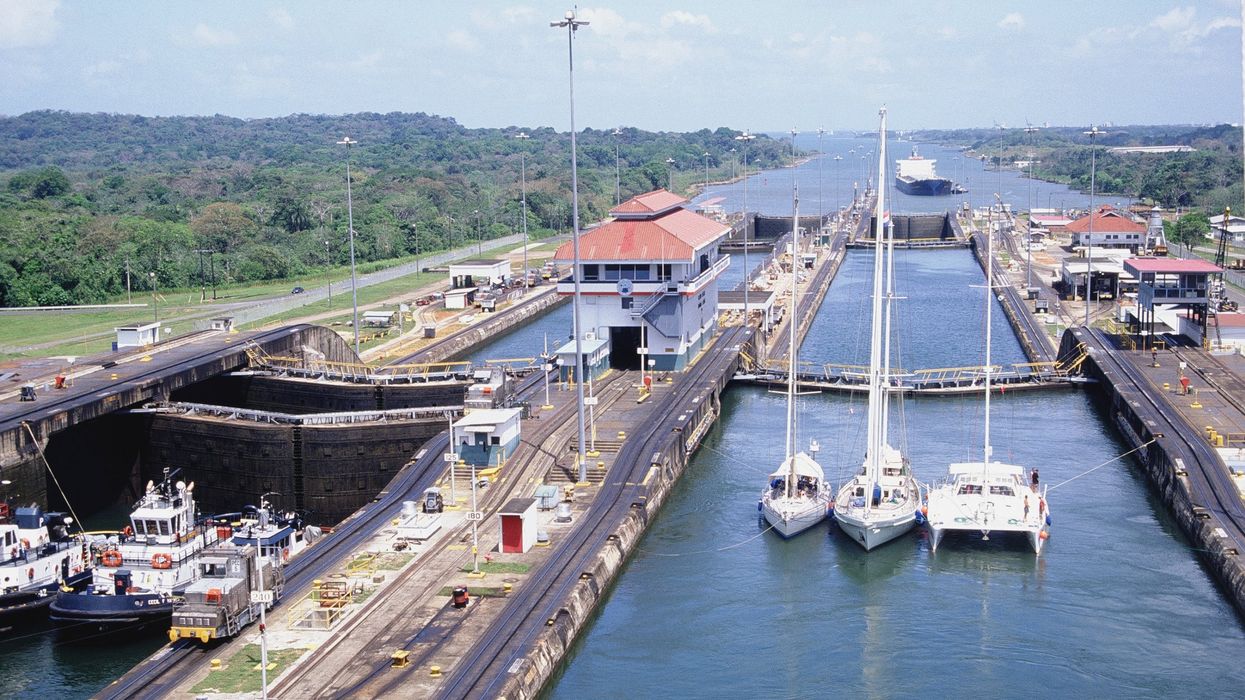The Fulcrum introduces Congress Bill Spotlight, a weekly report by Jesse Rifkin, focusing on the noteworthy legislation of the thousands introduced in Congress. Rifkin has written about Congress for years, and now he's dissecting the most interesting bills you need to know about, but that often don't get the right news coverage.
President Donald Trump wants the U.S. to take back the Panama Canal. A bill in Congress could help.
The Bill
The Panama Canal Repurchase Act would give the president congressional authorization to enter into negotiations with the Central American nation about acquiring their canal. The bill would technically apply to any president, not just to Trump.
While a prior draft of the legislation mentioned buying the canal for $1, Fox News Digital reported, no such price was included in the official version.
The House bill was introduced on January 9 by Rep. Dusty Johnson (R-SD). No Senate companion version appears to have been introduced yet.
Context: History
That potential $1 price was considered as a deliberate homage to the mistaken urban legend that President Jimmy Carter sold the canal to Panama for that amount.
What actually happened?
The 51-mile canal was constructed from 1903-14 to make boat travel and goods shipments easier between the Atlantic and Pacific Oceans. Before the canal, this trip had required thousands of extra miles around the southern tip of South America. ( This map provides a helpful visual.)
The U.S. maintained control of the canal for decades after, since it financed the project. But in 1977, wanting to improve relations with both Panama specifically and with Latin America in general, Carter signed the Panama Canal Treaty to turn the waterway’s control over to its host country in the then-distant year 2000.
The Senate ratified the treaty in 1978 by a 68 to 32 vote, only one more than the required two-thirds threshold. Democrats overwhelmingly supported it by 52-10, while Republicans narrowly opposed it by 16-22.
However, the price was not one dollar—indeed, there was no “official” price at all.
Context: Now
Trump claimed in his inaugural address that “China is operating the Panama Canal.” While that’s not technically true, Chinese involvement with the Panama Canal has increased in recent years as the country’s economy has grown. However, the U.S. still comprises 72% of the canal’s total cargo, with China a distant second at 23%.
Some have expressed particular concerns at Panama’s growing diplomatic ties with China, plus two ports on either end of the canal controlled by Hong Kong company Hutchison Ports PPC.
Accordingly, Trump has called for the U.S. to regain control of the Panama Canal. While his hope is for a peaceful negotiation, in a January press conference, he refused to rule out military force.
The issue is so important to the administration that Panama was Secretary of State Marco Rubio’s first foreign trip. (The Latin America visit also included neighboring countries Costa Rica, the Dominican Republic, El Salvador, and Guatemala.)
What Supporters Say
Supporters argue that the U.S. built the canal and its interests are currently threatened by it, so the U.S. should own it once again.
“President Trump is right to consider repurchasing the Panama Canal,” Rep. Johnson said in a press release. “China’s interest in and presence around the canal is a cause for concern. America must project strength abroad—owning and operating the Panama Canal might be an important step towards a stronger America and a more secure globe.”
The Trump administration’s top foreign policy official agrees.
“A foreign power today possesses, through their companies—which we know are not independent—the ability to turn the canal into a choke point in a moment of conflict,” Rubio said in his Senate confirmation hearing. “And that is a direct threat to the national interest and security of the United States.”
What Opponents Say
As you might expect, Panama’s political leader isn’t exactly on board.
“Every square meter of the Panama Canal and its adjacent area belong to Panama, and will continue to be. The sovereignty and independence of our country are not negotiable,” President José Raúl Mulino said in a statement. “The canal has no control, direct or indirect, neither from China… nor from the United States or any other power.”
President Joe Biden’s top foreign policy official also opposed the idea, while acknowledging that concerns around the issue had merit.
“When it comes to the resilience of our supply chains, when it comes to making sure that we can get what we need and we don’t have risk attendant with it, including from countries with which we have challenged relations—that is important,” Biden’s Secretary of State Antony Blinken said at a press conference. But “on the Panama Canal, we have a treaty, we have a settled policy of many years. And that’s not going to change.”
Odds of Passage
The bill has attracted 29 cosponsors, all Republicans. It now awaits a potential vote in the House Natural Resources Committee, controlled by Republicans.
Jesse Rifkin is a freelance journalist with the Fulcrum. Don’t miss his weekly report, Congress Bill Spotlight, every Friday on the Fulcrum. Rifkin’s writings about politics and Congress have been published in the Washington Post, Politico, Roll Call, Los Angeles Times, CNN Opinion, GovTrack, and USA Today.
SUGGESTIONS:
Congress Bill Spotlight: Make Greenland Great Again Act
Congress Bill Spotlight: BIG OIL from the Cabinet Act
Congress Bill Spotlight: renaming Gulf of Mexico as “Gulf of America”
Congress Bill Spotlight: constitutional amendment letting Trump be elected to a third term




















